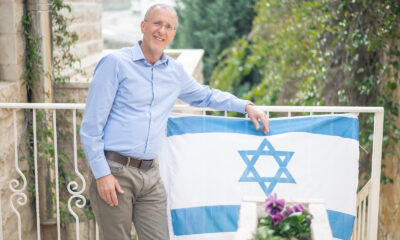
Israel

Israel is way too important to be left to Israelis
In spite of what Israelis may think, Israel needs the input of all Jews living in the diaspora, especially those in South Africa, says Israeli activist Anat Hoffman.
Speaking at Limmud in Johannesburg, Hoffman stressed the need for global Jewish dialogue around Israel’s complexities.
“If you believe Israel is your country, you have a voice,” said Hoffman. Hoffman is the executive director of the Israel Religious Action Center, the public and legal advocacy arm of the reform Jewish movement in Israel, and served as the Jerusalem city councillor for 14 years as the leader of the opposition.
Discussing the 400 000 Arabs who aren’t Israeli citizens and reside in East Jerusalem in abject poverty, Hoffman provided insight into Israel’s challenges. This group cannot vote for the Knesset and generally reject their right to vote in municipal elections in the “Zionist” state, exacerbating their service issues. On their travel documents, their nationality is listed as undecided. They don’t know where they belong. “It’s a time-bomb waiting to explode,” Hoffman said. “Such complexities illustrate why Israel needs all the advice, guidance, and sharing it can get.”
Many diaspora Jews think the best gift they can give to Israel is to support it unconditionally, Hoffman said. Yet, around the dinner table, families have discussions about their shared values. “You’ve denied Israel and yourselves this dialogue. Often, Israelis themselves are the ones to silence you.”
That’s because Israelis say they’ve all served in the army and paid their taxes, so they ask who you are to tell them how to run their affairs. Yet, in spite of mandatory conscription, statistics show that half of 18-year-old Israelis don’t go to the army, Hoffman says. Israel also has a high rate of tax evasion.
Jews in South Africa generously give when Israel faces a crisis, she said. “You give because you know that Israel is a joint project, the historic Jewish project of our lifetime. Don’t let anybody turn you away from the table. You don’t just have the right, but an obligation to say what you think.” This is particularly true of South African Jews, who in their gut know “bulls**t”, particularly when it comes to racism or discrimination.
Hoffman highlighted the Yiddish word freier, a common part of the Israeli lexicon. This is the belief that anyone who follows the rules, takes no for an answer, and does things like stand in line for a bus without pushing someone out of the way, is a sucker.
“This is something you can help Israelis with,” she told the audience. “How you behave and treat people is inspiring. You have a gift for Israel. Israelis don’t want this gift, but I think you need to save us from ourselves.”
Hoffman also spoke of a lack of leadership in Israel, especially in terms of brokering a peace deal between the Palestinians and Israelis. Here, she said, Israel can learn from the example of Nelson Mandela.
“We need someone with that kind of vision and power who will make Israelis and Palestinians do what needs to be done to create a two-state solution.”










